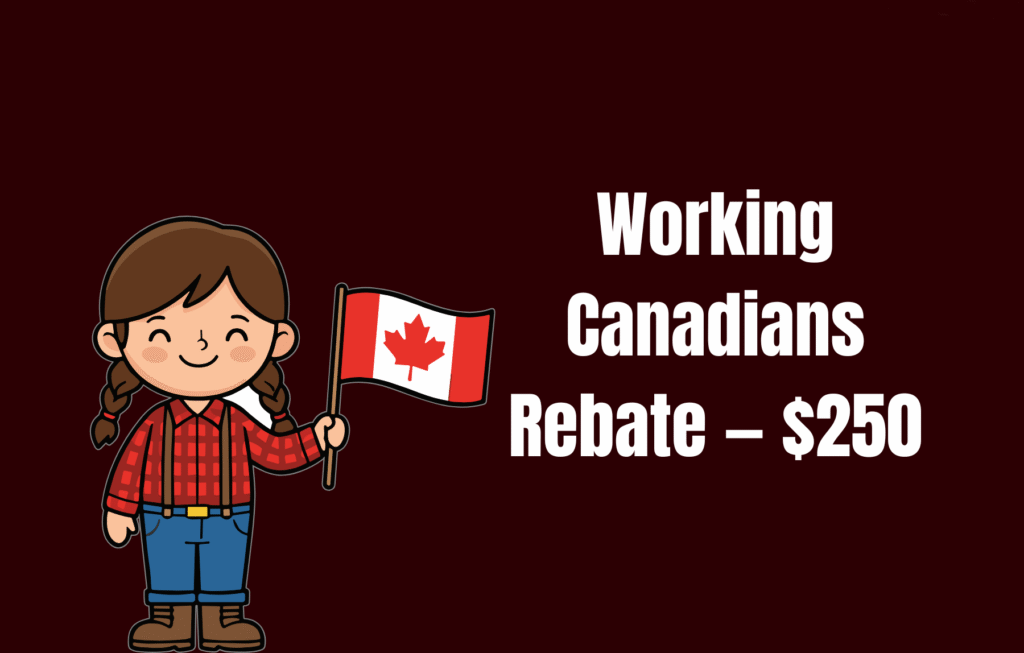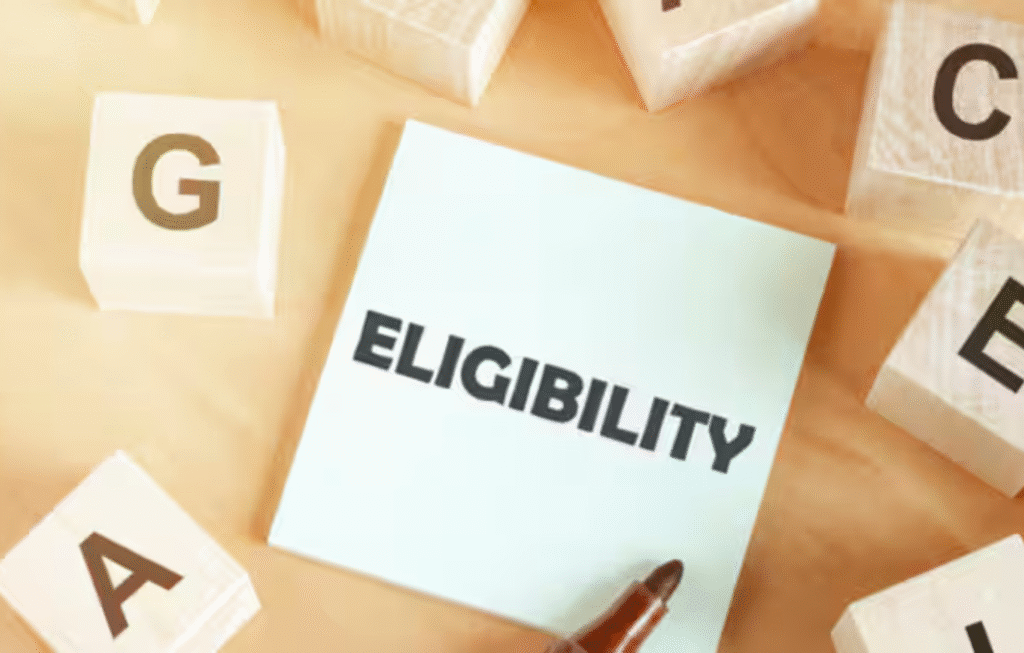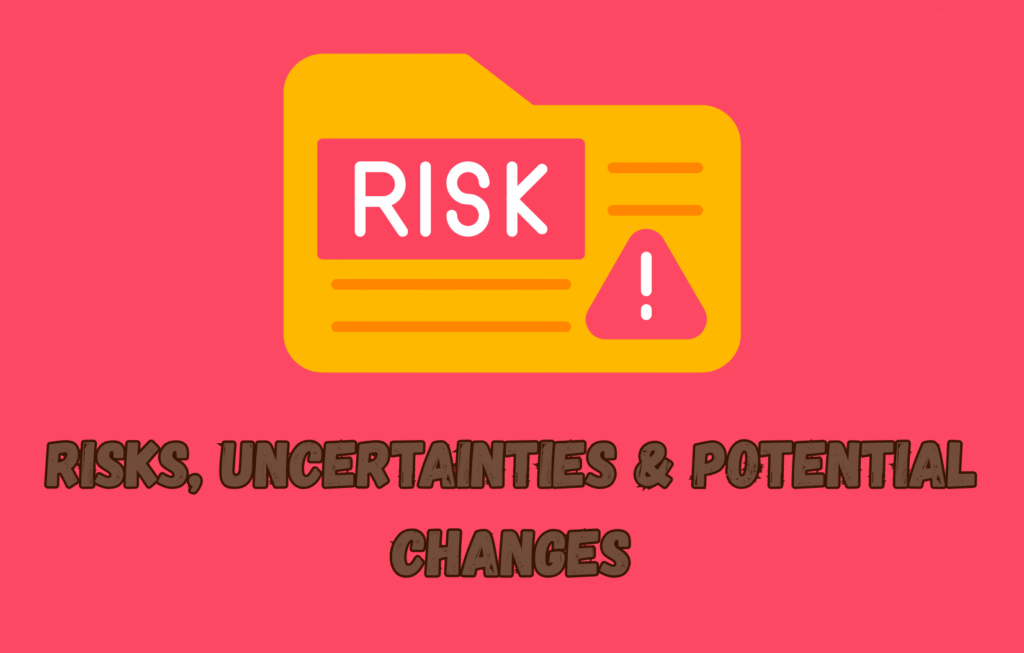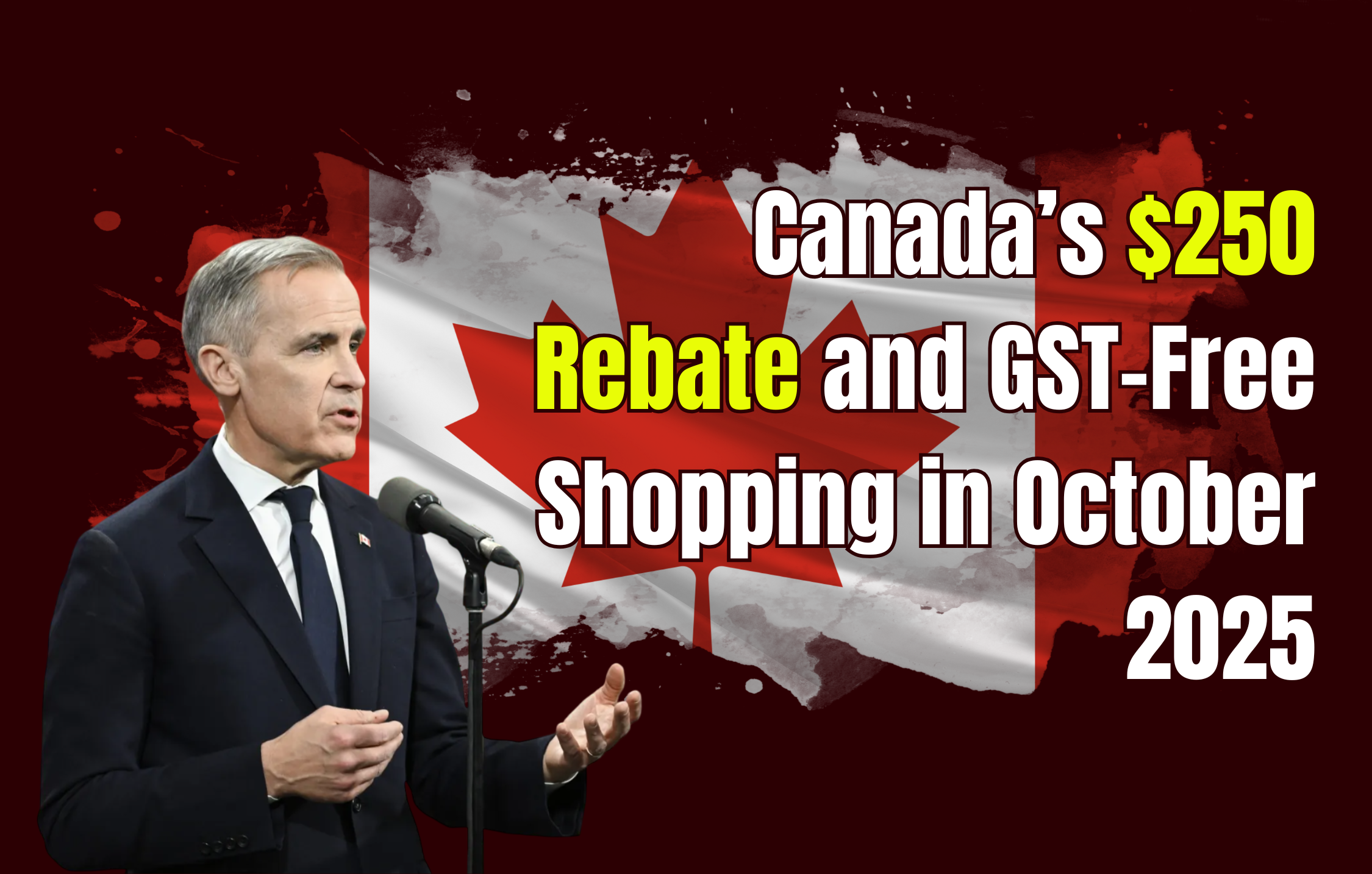$250 Rebate for Working Canadians & GST-Free Shopping in Oct 2025: Who Will Get This? Check Eligibility
As Canada struggles with inflation and rising household costs, the federal government has promised relief in two themes: a $250 Working Canadians Rebate and a temporary GST/HST exemption (i.e. “GST-free shopping”) on many everyday essential items. Many Canadians wonder: will these benefits still apply in October 2025? Who qualifies, when, and under what conditions? Below is a breakdown of what is confirmed, what is proposed, and what remains uncertain as of mid-2025.
Background: What Are These Measures?
Working Canadians Rebate — $250

In November 2024, the Government of Canada announced plans to introduce a one-time, tax-free $250 rebate to eligible working Canadians. The idea is to put money directly back into the pockets of middle- and lower-income workers.
The rebate is designed to be automatic, meaning eligible individuals meeting certain tax and employment criteria would not need to apply to receive it.
GST/HST Exemption (GST-Free Shopping)
Alongside the rebate, the government also announced that it would temporarily suspend GST/HST on a long list of essential goods — groceries, restaurant meals, snacks, children’s clothing, toys, books, diapers, and more — from December 14, 2024 through February 15, 2025. During that period, Canadians could purchase those items without paying the federal sales tax (and in HST provinces, without the harmonized tax) at the point of sale.
These measures were marketed as a holiday / cost-of-living relief package to help households during peak spending months.
What We Know So Far: Eligibility, Timing, and Limitations
Eligibility for the $250 Rebate

According to the announced plan:
- Must have worked in 2023, and have filed a 2023 tax return by December 31, 2024.
- Must have net income in 2023 less than or equal to CAD 150,000.
- Must have claimed credits for Canada Pension Plan (CPP) / Quebec Pension Plan (QPP) contributions on employment/self-employment earnings, or claimed credits for Employment Insurance (EI) / QPIP premiums, or reported income from EI or QPIP.
- Must be a resident of Canada as of March 31, 2025.
- Must not have been incarcerated for at least 90 days immediately prior to April 1, 2025.
- Must not be deceased as of April 1, 2025.
The government estimated that about 18.7 million Canadians would qualify under those conditions.
What This Means in Practice
- If you didn’t work at all in 2023 (for instance, being retired, on long-term disability, or receiving only government assistance), you are likely not eligible. This has already drawn criticism and pushback from groups representing seniors, people with disabilities, and others.
- Even if your income is below $150,000, you still need to satisfy the CPP/EI credit or benefit reporting requirement.
- The rebate is intended to be automatic — the Canada Revenue Agency (CRA) would send it via direct deposit or cheque to eligible Canadians. No application is to be required.
- The $250 amount is tax-free.
Scope and Duration of the GST/HST Exemption
The tax relief applied to a fairly wide list of goods and services, including:
- Prepared foods, including vegetable trays, salads, sandwiches
- Restaurant meals, dine-in, take-out, or delivery
- Snacks (chips, candy, granola bars)
- Beer, wine, cider, and some lower‑alcohol drinks
- Children’s clothing, footwear, car seats, diapers
- Children’s toys, games, puzzles
- Books, print newspapers
- Christmas trees
- Other seasonal & holiday-related items
This GST/HST exemption was scheduled to last only from December 14, 2024 to February 15, 2025.
Thus, by October 2025, that exemption would have already expired unless new legislation extends it. As of mid‑2025, there is no publicly confirmed extension beyond February 2025.
What Applies in October 2025?
Will You Get the $250 Rebate in October 2025?
Likely no, in the sense that the rebate was intended as a one-time payment, scheduled for early spring 2025. That is, the $250 cheque was not designed to recur every year.
Unless new legislation is passed (or an update is made) to make this rebate recurring or to expand it to future dates, October 2025 would not trigger another $250 payment.
That said, if the bill authorizing the rebate has not yet become law or if its implementation is delayed, some payments could still fall in late 2025 — but that would be unusual and subject to parliamentary approval. There is no current government announcement confirming an October 2025 rebate.
Will GST‑Free Shopping Be Available in October 2025?
No. The GST/HST suspension was explicitly temporary, running from December 14, 2024 to February 15, 2025. That period is long past by October 2025. Unless the government introduces new legislation to repeat or extend the exemption through fall 2025, there is no GST relief scheduled for that time as of now.
In summary: in October 2025, unless new policies are passed, you should not expect a $250 rebate nor GST‑free shopping under the currently announced scheme.
Risks, Uncertainties & Potential Changes

Legislative & Political Uncertainty
- As of mid-2025, it remains possible that the $250 rebate is still subject to legislative passage, delays, or amendment. Some reports have suggested the government might reconsider or even reverse it in a fiscal update.
- Some opposition parties have demanded that the rebate be expanded to include seniors, persons with disabilities, and people who did not work in 2023. Without such changes, many vulnerable groups would remain ineligible.
- The GST exemption was approved for a specific timeline. To have it reappear in October 2025, a new legislative act must be introduced. There has been no announcement of an extension to that date thus far.
Scams & Fraud Warnings
Because the $250 rebate is a relatively new program (in announcement), the CRA has already issued warnings that scammers may pose as the agency offering a “rebate claim” to extract personal data, SINs, banking info, or money.
The CRA emphasizes:
- It will not send unsolicited texts/emails requiring immediate action
- It will not ask for payments (Interac, gift cards) or threaten arrest
- Genuine rebate payments will be automatic (no need to “apply” via unknown third‑party websites)
If you receive suspicious messages about this rebate, treat them cautiously and verify with official government sources.
Edge Cases & Special Situations
- Some Canadians who do not exactly fit typical criteria (e.g. those under sponsorship agreements, some non‑residents, or those who did not file 2023 tax returns on time) might be disqualified or delayed in receiving benefits.
- There is some debate about whether someone with only EI income or some social assistance might be eligible; the announced requirement is that one must have claimed employment-related credits or reported EI/QPIP income.
- If the CRA’s administrative systems are delayed or backlogged, payments might be delayed beyond the scheduled spring 2025 window.
Who Would Have Received (or Will Receive) the $250?
To recap, if you meet all criteria during the eligibility window, you would likely receive the $250 rebate automatically (by direct deposit or cheque) in early spring 2025. Qualifying characteristics include:
- You worked in 2023, and filed your 2023 tax return on time
- Your net income in 2023 was less than or equal to CAD 150,000
- You claimed CPP/QPP, EI/QPIP credits or reported EI/QPIP benefit income
- You were a resident on March 31, 2025
- You were not incarcerated during the 90 days before April 1, 2025
- You are alive as of April 1, 2025
If you meet those, you would be among the estimated 18.7 million Canadians expected to get the rebate.
However, if your primary income in 2023 was from social assistance, or you did not file, or your earnings exceeded the threshold, you would likely not qualify under the current rules.
What to Do Now (for Canadians)
- File your 2023 tax return (if not already done)
The rebate depends on having filed your return by the end of 2024. Missing that window could disqualify you. - Ensure your banking/direct deposit info is up to date with CRA
So that the rebate (if you qualify) can be deposited smoothly. - Watch for legislative updates
Keep an eye on federal budget releases, finance department announcements, or CRA communications — if they decide to expand or renew these benefits for late 2025, the news will come from official channels. - Be alert to scams
If someone contacts you claiming you must pay or “claim your rebate” via a link, phone call, or form, it could be fraudulent. Always verify with CRA. - Don’t expect GST‑free shopping in October yet
The temporary tax relief has expired under current rules; unless a new policy is passed, you’ll likely still pay GST/HST on goods at that time.
Conclusion & Outlook
The promises of a $250 Working Canadians Rebate and
GST‑free shopping were bold relief measures announced in late 2024, aimed at easing pressure on households during a costly winter season. However, both initiatives are time-limited and contingent on legislation and implementation.
- The $250 rebate is intended to be a one-time benefit delivered in spring 2025 to those who meet the eligibility criteria.
- The GST/HST suspension was explicitly scheduled only from December 14, 2024 through February 15, 2025.
- As of mid-2025, nothing currently guarantees that similar measures will be in place or repeated in October 2025.
Therefore, Canadians should temper expectations for rebate or sales-tax relief later in 2025 — unless new laws are passed or the government renews or extends the programs.
FAQs
1. What is the $250 Working Canadians Rebate?
It’s a one-time, tax-free payment for eligible working Canadians, announced in 2024 to help with inflation and cost-of-living. Most recipients are paid automatically via CRA.
2. Who qualifies for the $250 rebate?
You must have worked in 2023, filed a 2023 tax return, earned under $150,000, and meet CPP/EI credit rules. Residency and incarceration status also matter.
3. Is the $250 rebate still available in October 2025?
No, the rebate was a one-time payment set for early 2025. As of October 2025, there is no extension or second payment announced by the government.
